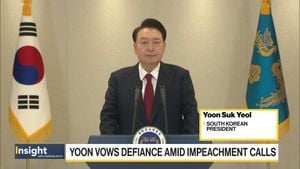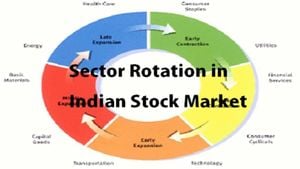Nopparat Dechkitvichakorn, chairman of Thailand's Thai Pakdee Party, has recently ignited discussions about the potential for significant political changes within the country. Reporting from TOJO News indicates Dechkitvichakorn announced via social media, "The change is about to happen; the reality is getting closer with resistance against online gambling and constitutional amendments being sidelined." This remark encapsulates the increasing tension surrounding the government and its legislative proposals.
The environment for change is thick with public sentiment and economic turmoil. Constituents are expressing frustration over rising prices, stagnant markets, and the controversial proposals for online gambling legalization. These issues reflect broader discontent with the government, as citizens grapple with economic challenges and perceived government failures. Various analysts argue this mounting dissatisfaction could pave the way for significant shifts within Thailand's political climate.
Thailand has been historically challenged by fluctuations between progressive reforms and conservative push-backs. The recent unrest highlights how the proposed gambling legislation has met significant opposition, reflecting wider social concerns about morality, government oversight, and economic ramifications for the average citizen. Proponents of the legislation argue it could boost the economy, yet the public outcry suggests skepticism on its merits due to fears of gambling addiction and financial exploitation.
Dechkitvichakorn's statements not only communicate concerns about upcoming votes and policy debates but also serve as rallying points for opposition parties and engaged citizens who feel sidelined by current governance. The resistance against changes has even prompted conversations about reassessing the country’s constitutional parameters, particularly concerning amendments aimed at addressing these pressing socio-economic issues.
February of this year saw protests led by significant public figures denouncing the gambling proposals as the government faced rampant criticism over economic decline. Analysts indicate these conflicts not only highlight the split between governmental decisions and public opinion but may foreshadow broader electoral movements if constituents feel their voices are consistently ignored.
Beyond just words, tangible actions reflect the urgency of the situation. Many citizens have taken to the streets, arguing against proposed measures to legalize online gambling, claiming it would exacerbate existing problems. Dechkitvichakorn emphasized these sentiments, stating the push for online gambling was fundamentally flawed considering the current economic hardships faced by the public.
The very fabric of Thailand's political stability is seeming more tenuous with each passing day. The recent economic downturn, coupled with discontent over governance, has galvanized activists across the spectrum—advocacy for structural change is rising. With the backdrop of worsening economic indicators and rising inflation, stakeholders from various sectors are closely monitoring how these dynamics will play out.
Critics of the government assert the rising cost of living and limited economic options have created fertile ground for disillusionment, exacerbated by attempts at reforming the gambling framework. They fear it might not only lead to increased addiction but also detract from more productive economic innovations needed to stabilize the nation’s finances.
Dechkitvichakorn's call for change coincides with broader criticisms of governmental authority, indicating the need for more inclusive decision-making processes. Should these public demands continue to resonate, it could lead to political shifts reminiscent of past movements where civilian voices could no longer be ignored.
Thailand’s future political climate hangs suspiciously close to the brink of transformation. With Dechkitvichakorn's declaration framing the discourse, the question now rests on how government officials will heed public outcries amid increasing challenges. If the past week has demonstrated anything, it's the formidable strength of public sentiment and its capacity to drive political change.
Legislation, protests, and public discourse are now intertwined more than ever, painting a picture of imminent political evolution. Every statement made by political leaders influences this swirling tempest of public opinion and each economic development is more than just numbers—it could herald the dawn of significant political changes.



